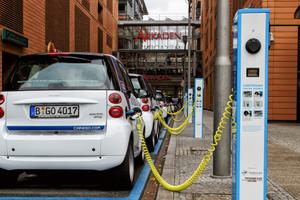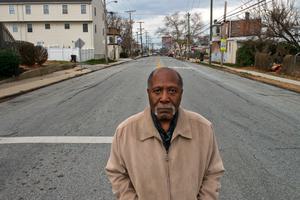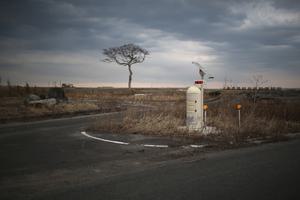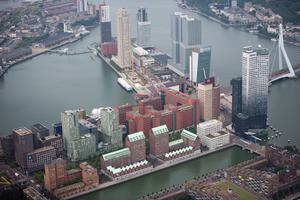Cities
-
Hazardous Haze
Unraveling the Myriad Causes Of North India’s Pollution Pall
-
Before the Storm
A Vulnerable Community Braces for the Impacts of Sea Level Rise
-
Photo Essay
How Pollution is Devastating an Indonesian Lake
-
For India’s Captive Leopards, A Life Sentence Behind Bars
As sightings of leopards in populated areas increase, Indian authorities are trapping the animals and keeping them in captivity — often in small cages without adequate food or veterinary care. The real solution, wildlife advocates say, is to educate the public on how to coexist with the big cats.
-
Hard-Pressed Rust Belt Cities Go Green to Aid Urban Revival
Gary, Indiana is joining Detroit and other fading U.S. industrial centers in an effort to turn abandoned neighborhoods and factory sites into gardens, parks, and forests. In addition to the environmental benefits, these greening initiatives may help catalyze an economic recovery.
-
Bringing Energy Upgrades To the Nation’s Inner Cities
Donnel Baird has launched a startup that aims to revolutionize how small businesses and nonprofits secure funding for energy efficiency and clean energy projects in low-income neighborhoods. In a Yale Environment 360 interview, he talks about how he plans to bring his vision to dozens of U.S. cities.
-
Can Uber-Style Buses Help Relieve India’s Air Pollution?
India’s megacities have some the deadliest air and worst traffic congestion in the world. But Indian startups are now launching initiatives that link smart-phone apps and private shuttle buses and could help keep cars and other motorized vehicles off the roads.
-
With New Tools, A Focus On Urban Methane Leaks
Until recently, little was known about the extent of methane leaking from urban gas distribution pipes and its impact on global warming. But recent advances in detecting this potent greenhouse gas are pushing U.S. states to begin addressing this long-neglected problem.
-
Rethinking Urban Landscapes To Adapt to Rising Sea Levels
Landscape architect Kristina Hill focuses on helping cities adapt to climate change, particularly sea level rise. In an interview with Yale Environment 360, she discusses the challenges, solutions, and costs of saving cities from encroaching oceans.
-
In Istanbul’s Ancient Gardens, A Battle for Future Harvests
Development pressures are threatening Istanbul's centuries-old gardens, which have produced food for the city's markets since Byzantine times. A coalition of gardeners and environmentalists is fighting to preserve them.
-
Moving Beyond the Autobahn: Germany’s New Bike Highways
With the recent opening of a “bike highway,” Germany is taking the lead in Europe by starting to build a network of wide, dedicated bicycle thoroughfares designed to lure increasing numbers of commuters out of their cars and onto two wheels.
-
Aerial Views Of Why Europe Has a Small Carbon Footprint
Europe and the United States have very similar standards of living, but significantly different carbon footprints. Aerial photographer Alex MacLean documents this phenomenon in images that show how Northern Europe uses smart design and planning to reduce the amount of carbon it emits.










